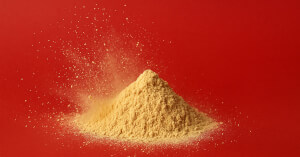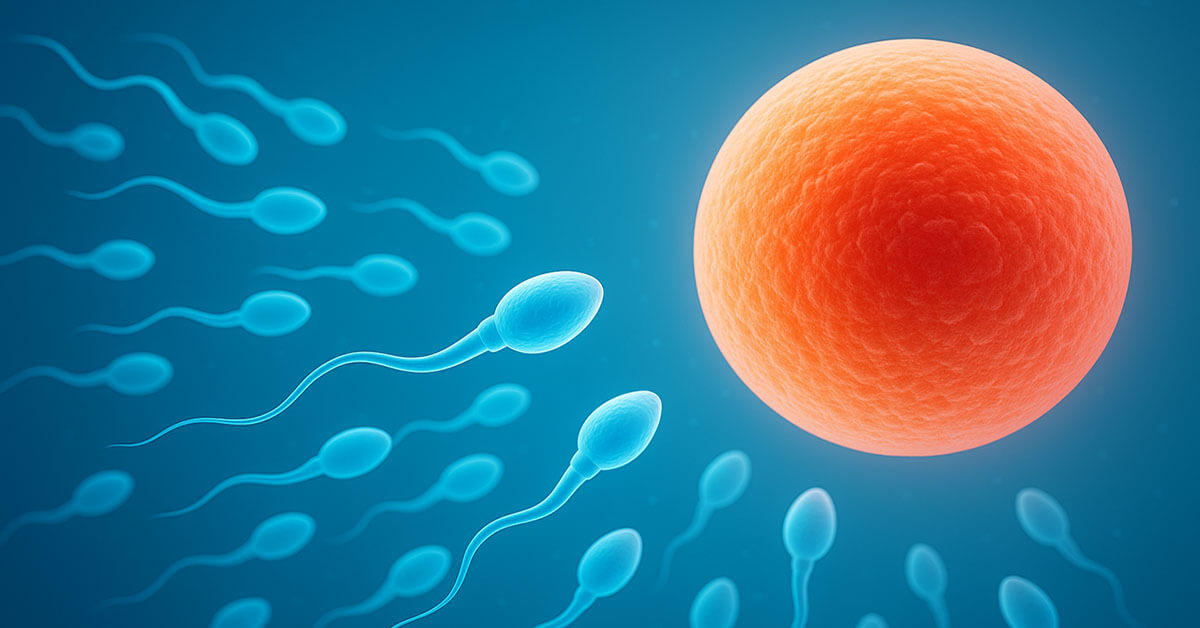
Best Supplements for Men’s Fertility and Sperm Quality

Male fertility has been declining worldwide over the past decades. Large meta-analyses show that sperm counts in men from Western countries have dropped by more than 50% since the 1970s, raising concerns about reproductive health and future generations.
Factors such as stress, environmental toxins, poor diet, and micronutrient deficiencies all contribute to this trend. Sperm cells are particularly vulnerable to oxidative stress and require high levels of nutrients to maintain proper function. While medical evaluation is essential in cases of infertility, research shows that targeted supplements can help improve sperm count, motility, morphology, and DNA integrity.
In this article, we’ll explore the most effective supplements to support men’s fertility and sperm quality, explain how they work, review the clinical evidence, and provide practical dosage guidance based on published studies.
Zinc
Zinc is one of the most important minerals for male fertility. It is directly involved in testosterone production and the development of healthy sperm cells. Low zinc levels are strongly linked with reduced sperm count and poor motility.
📊 Clinical Evidence: A large 2016 meta-analysis found that infertile men had significantly lower seminal zinc concentrations compared to fertile men, and zinc supplementation was associated with improvements in sperm motility, semen volume, and normal morphology. More recently, a 2023 clinical trial in infertile men with type 2 diabetes showed that two months of zinc supplementation reduced sperm head and tail abnormalities and improved motility.
✔️ Typical Dosage Range: 15–30 mg of elemental zinc daily for fertility support, usually in the form of zinc sulfate, gluconate, or citrate. Short-term clinical trials sometimes use up to 40 mg/day, often paired with folate, but this is the upper safe limit.
Selenium
Selenium is a trace mineral that supports antioxidant enzymes like glutathione peroxidase, which protect sperm cells from oxidative damage. Low selenium levels are linked to reduced sperm motility and morphology.
📊 Clinical Evidence: One clinical trial (1975–1998 study) found that selenium supplementation in subfertile men with low selenium status significantly improved sperm motility. More recently, a 2023 trial (selenium 200 µg/day for 6 months) in men with idiopathic oligoasthenoteratospermia showed improved sperm concentration, increased motility, and reduced DNA fragmentation after supplementation.
✔️ Typical Dosage Range: 100–200 mcg daily, usually as selenomethionine.
Coenzyme Q10 (CoQ10)
CoQ10 is a powerful antioxidant and a vital part of energy production inside the mitochondria. Because sperm cells rely heavily on mitochondria for motility, supplementing with CoQ10 may help improve their ability to move efficiently and reduce oxidative damage to DNA.
📊 Clinical Evidence: Multiple clinical studies show that CoQ10 supplementation can improve sperm parameters in men with idiopathic infertility. A 2021 systematic review concluded that CoQ10 consistently improved sperm motility and overall seminal antioxidant capacity. Another trial from 2019 compared 200 mg and 400 mg daily doses for three months and found that both improved sperm count, motility, and morphology, with greater benefits seen at the higher dose.
✔️ Typical Dosage Range: Most clinical studies use 100–300 mg per day of CoQ10. Some trials test up to 400 mg daily for stronger effects, usually taken with a fat-containing meal to boost absorption.
L-Carnitine
L-Carnitine helps transport fatty acids into the mitochondria, where they are used for energy. Sperm cells require high levels of energy to move effectively, and L-carnitine supplementation has been linked with better motility.
📊 Clinical Evidence: A double-blind, randomized, placebo-controlled trial found that supplementation with L-carnitine and L-acetylcarnitine improved sperm motility, vitality, and reduced DNA fragmentation in men with idiopathic infertility.
A more recent meta-analysis concluded that carnitine derivatives significantly improve total sperm motility, progressive motility, and sperm morphology among infertile men.
✔️ Typical Dosage Range: 2–3 g daily of L-carnitine or acetyl-L-carnitine, often divided into two doses.
Omega-3 Fatty Acids
Omega-3 fatty acids, particularly DHA, are incorporated into the membranes of sperm cells. They improve membrane fluidity, which helps sperm swim more effectively and fertilize an egg.
📊 Clinical Evidence: A 2020 trial combining DHA from Omega-3 and vitamin E reported improved sperm motility
✔️ Typical Dosage Range: 1–2 g per day of combined EPA and DHA, typically from fish oil or algae oil.
Vitamins C & E
Oxidative stress is one of the biggest threats to sperm health. Vitamin C and Vitamin E work together as antioxidant partners to protect sperm DNA and improve sperm morphology.
📊 Clinical Evidence: A randomized controlled trial evaluated supplementation with 1g of Vitamin C plus 1g of Vitamin E daily for two months in men with unexplained infertility and elevated sperm DNA fragmentation. The treatment group showed a significant reduction in DNA fragmentation compared to placebo.
A recent meta-analysis of 11 randomized controlled trials reported that combining vitamins C and E improved sperm concentration, motility, morphology, and even pregnancy rates compared to controls, though the evidence quality is moderate.
✔️ Typical Dosage Range: Vitamin C: 500–1000 mg daily, Vitamin E: 200–400 IU daily.
Ashwagandha
Ashwagandha is an adaptogenic herb traditionally used in Ayurvedic medicine. It helps regulate stress hormones and may also boost testosterone levels, which are important for sperm production.
📊 Clinical Evidence: A 2009 clinical trial found that infertile men who took ashwagandha root extract for 3 months showed improvements in sperm count, motility, and serum testosterone. Stress markers like cortisol also decreased.
✔️ Typical Dosage Range: 300–600 mg per day of standardized root extract.
Folate and Vitamin B12
Folate (vitamin B9) and vitamin B12 are crucial for DNA synthesis and cell division, both of which are essential for sperm production. Deficiencies in either vitamin can impair sperm quality.
📊 Clinical Evidence: A clinical trial reported that combined folate and zinc treatment increased the total number of morphologically normal sperm by 74% in subfertile men.
✔️ Typical Dosage Range: Folate: 400 mcg daily. Vitamin B12: 500–1000 mcg daily, preferably as methylcobalamin.
Maca Root
Maca root, a plant native to Peru, has a long tradition of use for male vitality and fertility. While it is often marketed for boosting libido, some evidence suggests it may also improve sperm quality.
📊 Clinical Evidence: A clinical trial reported that 4 months of Maca supplementation increased seminal volume, sperm count per ejaculate, motile sperm count and sperm motility, even though hormone levels did not change significantly.
✔️ Typical Dosage Range: 1.5–3 g of dried maca root powder daily, often taken as capsules or in smoothies.
Final Thoughts
Improving men’s fertility requires a holistic approach: addressing lifestyle factors like diet, stress, sleep, and toxin exposure, along with considering targeted supplements. Among the best-supported options are zinc, selenium, CoQ10, L-carnitine, omega-3s, and antioxidant vitamins. Herbs like ashwagandha and maca add extra support, while folate and B12 ensure healthy DNA synthesis.
While supplementation can make a measurable difference, it should not replace a full medical evaluation. If you and your partner have been trying to conceive without success, consult a healthcare professional to identify potential underlying causes. Still, with the right combination of nutrients and healthy lifestyle changes, many men see real improvements in sperm quality and fertility potential.
Frequently Asked Questions
What supplements can increase sperm count?
Evidence-backed options include zinc, selenium, CoQ10, L-carnitine, folate, vitamin B12, and antioxidant vitamins C and E. These nutrients support spermatogenesis, protect DNA from oxidative stress, and may raise total sperm count when used consistently for 3–4 months.
What supplements help with male infertility?
For a broader male infertility goal, a balanced stack typically combines: zinc or a multimineral with selenium, CoQ10 for mitochondrial energy, L-carnitine for motility, omega-3s for membrane fluidity, plus folate and B12 for DNA synthesis. Discuss combinations and lab testing with a clinician.
How long do fertility supplements take to work?
Spermatogenesis takes roughly 72–90 days. Most trials report measurable changes after 3 months, with some continuing gains by month 4–6. Stay consistent and reassess with follow-up semen analysis.
Does CoQ10 really improve sperm motility?
Multiple clinical studies and reviews indicate that CoQ10 can improve progressive motility and seminal antioxidant capacity. Typical study ranges are 100–300 mg per day, sometimes up to 400 mg, taken with a meal containing fat.
Should I take zinc and folate together?
Some research shows benefits from combining zinc with folate for sperm parameters, while large trials show mixed results. If you supplement zinc long-term, monitor copper status and avoid exceeding the upper limit without medical guidance.
Can omega-3s (DHA/EPA) improve sperm quality?
Omega-3s help build healthy sperm membranes and may support motility and antioxidant defenses. Effects vary by study design and dose. Intakes of about 1–2 g per day of EPA+DHA are common in research and practice.
Is Ashwagandha useful for male fertility?
Trials in subfertile men suggest ashwagandha can improve sperm count, motility, and reduce stress markers. Standardized root extracts in the 300–600 mg per day range are commonly used. Check for interactions if you take medications.
Does Maca root help with sperm parameters?
Small clinical studies report increases in semen volume, sperm count, and motility without major hormone changes. Typical intakes are 1.5–3 g daily of gelatinized or standardized maca.
What are safe daily doses for zinc and selenium?
Common ranges used for fertility support: zinc 15–30 mg elemental per day short-term, selenium 100–200 mcg per day as selenomethionine. Do not exceed tolerable upper limits without supervision: zinc 40 mg/day, selenium 400 mcg/day.
Besides supplements, what lifestyle changes help?
Maintain a nutrient-dense diet, achieve a healthy weight, limit alcohol, avoid tobacco and anabolic steroids, reduce heat exposure to the testes, manage stress, and prioritize sleep. These fundamentals amplify the benefits of any supplement plan.
This article was originally published on Stackbb, your trusted source for science-based supplement guides.







